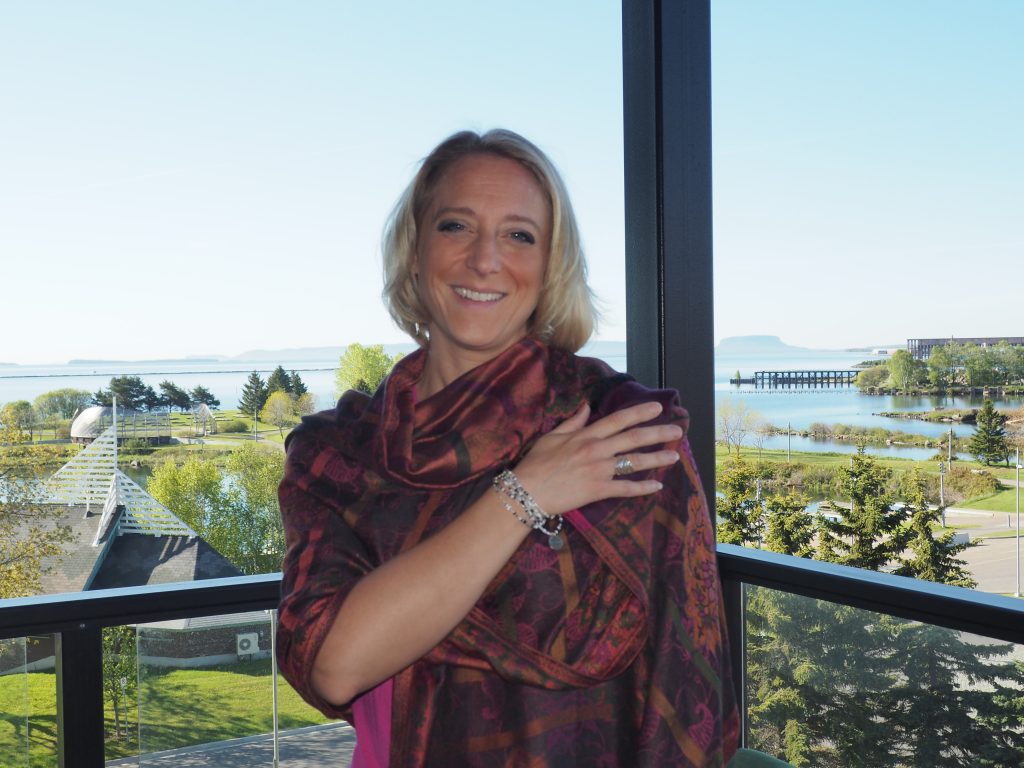A few years later, I had the opportunity to go to India. I had done my research and knew that there would be a lot of people panhandling and that many of those people would be disabled and disfigured children. I learned that it was socially irresponsible to give money to street people because it perpetuated a culture of maiming children to make them more effective beggars. And so I, like many others, looked away. Again and again and again, I looked away. I got so good at looking away that after a few weeks, I stopped seeing panhandlers altogether. On my last day, I was in a taxi on my way to the airport to fly to Delhi and then home. I was eating a melted Snickers bar, slightly concerned about what kind of food might be available to me at the domestic departure gate in Calcutta. My taxi was stuck in traffic and suddenly I was startled by a face pressed right up at my window. It was young boy with sad eyes as big as saucers. He was staring at my Snickers bar. He wanted that bit of food more than anything I’d ever wanted in my whole life. Before I had time to react, traffic cleared and my taxi sped off. In that split second, I felt my heart break. I have never forgotten what it feels like to look back and to realize that I should have done…something.
I’m now back in Canada, a tenured college professor. As my disposable income increases, so does my sense of responsibility. My husband and I give monthly to several charities: Medicines sans frontiers (Doctors without Borders), the United Way, and Amnesty International. We did a lot of research; we wanted to make sure that our dollars weren’t wasted. They are great charities doing important work to be sure, but my participation feels very remote. To compensate, I do small things – attend local charity functions, donate to the food bank, drive cancer patients to chemo appointments, organize litter clean up events.
Recently I attended a TEDx event. TED stands for technology, education, and design, and the events are comprised of various short presentations on all kinds of fascinating topics. You can check them out at www.ted.com. What is really wonderful about these events is that the audience can make unique and personal connections amongst all of these really diverse presentations, and so a really interesting synergy can be created. When I registered for the event, I had to fill in a box that asked “What are you waiting for?” I’d been researching Indigenous issues in Canada and so the issue of potable water on reserves was weighing heavily on my mind. I wrote that I was waiting for the Liberal government to fulfill its election promise of restoring drinking water to the hundreds of communities in my province that have been under boil water advisories for years. What I didn’t know at the time was that these statements would be condensed down to a single word. My name tag said that I was waiting for water.
One of the most fascinating presentations for me that day was one on plastics pollution. If you haven’t heard about the “five gyres,” I urge you to Google it. Plastics, like those used in single-use shopping bags and disposable utensils, are synthetic and do not decompose. They break down into tiny particles, but they don’t go away. Ever. Instead, they are eaten by fish which are then eaten by us, and those plastics contain all kinds of chemicals which then leach into our bodies. I sat through that presentation, toying with the rafiki bracelet that I’d received when I became a member of One Woman. My “track your impact” code had introduced me to Jane, a Kenyan woman who, thanks to Free the Children, now had easier access to water for her family. I thought about my name tag. I thought about all those communities – in Canada as well as in developing countries – that don’t have drinkable water. I thought about beautiful Lake Superior and how grateful I am to be living on its shores. I thought about what life would be like if that water became undrinkable.
When I wanted to quit smoking, one of the suggested strategies was to tell your friends and family so that they could hold you accountable if you tried to cheat. When I wanted to get in better shape, I joined a fitness challenge for the same reason. You can’t brag to everyone that you’re in a fitness challenge and then stuff your face with brownies without feeling like a fraud.
When I came home from this TED event, I changed my Facebook status: “Deborah Shannon…will never use a single-use plastic utensil again”. It’s a small thing, I know, but just as minute particles have the power to destroy an ecosystem, little choices have the power to make a big impact. You know that already; that’s why you joined One Woman. Because you know that one woman can make a big difference. You can make a difference.
So, as the organizers of the Thunder Bay TEDx asked, what are you waiting for? I challenge you to search your heart, find what touches it, and publicly declare what you will do to make the world a little bit better.

